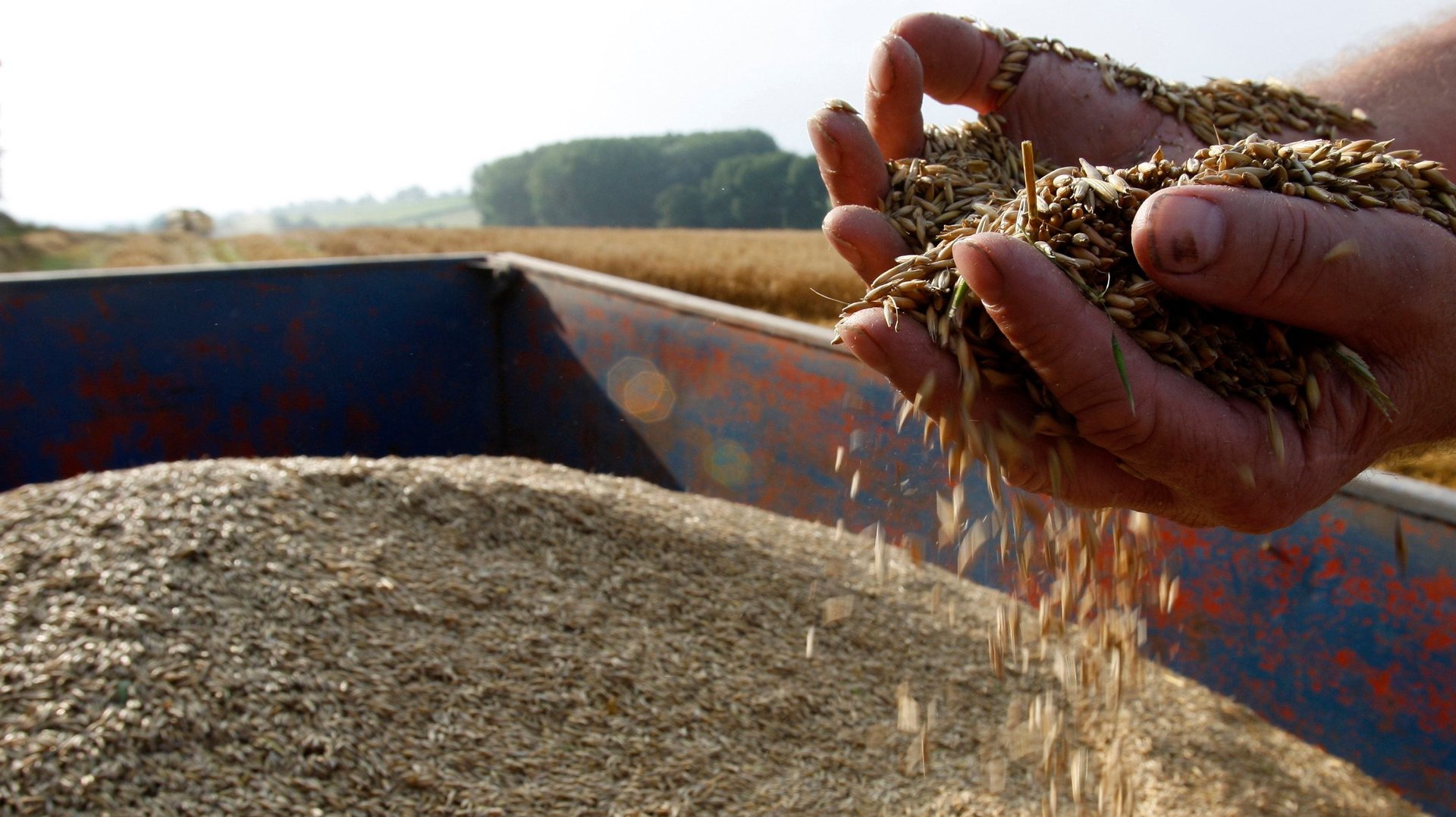Oat milk is poised to take over the US
Almond, soy, rice, hemp, macadamia, hazelnut, pea, flax, coconut, cashew, peanut, walnut—there’s been a recent explosion in the varieties of plant-based milks. It’s a crowded market, and the non-dairy cream of the crop right now is oat milk. It’s vegan, gluten-free, nut-free, and GMO-free.


Almond, soy, rice, hemp, macadamia, hazelnut, pea, flax, coconut, cashew, peanut, walnut—there’s been a recent explosion in the varieties of plant-based milks. It’s a crowded market, and the non-dairy cream of the crop right now is oat milk. It’s vegan, gluten-free, nut-free, and GMO-free.
Oat milk’s success (paywall) isn’t just because of all the things it’s not. Oatly, the Swedish oat nerds who launched the drink in the US market, first introduced it to third-wave coffee shops with a special “barista blend” that foams like dairy and really works in coffee. Over the past few months Oatly has been phased into grocery stores as well and the company’s excellent marketing and oat milk’s actual tastiness make it a strong bet as the eventual winner of this plant-milk melee. Here’s why.
Oatly knows how to talk to people
I’m not a huge fan of plant-based milks. Though I know globally I’m in the minority, lactose and I get along smashingly. I’m from dairy country. Cow’s milk is far less processed than almond or soy milk. After spending 15 minutes on Oatly’s website though, I was a little bit in love with company, and I’m someone who thinks about the way food is marketed for a living.
There are other oat milk producers, like natural food store staple Pacific Foods and plant-based milk innovator Elmhurst Milked, but Oatly really owns the oat milk market. The company has a sort of Everlane ethos in effect, in that they understand that their customers are people who are looking closely at the ingredients list, and want to know how the vegan sausage is made. Various product pages address why they’ve added sugar, or why a strawberry energy beverage is made in Austria instead of Sweden, or why they use palm oil in a cheese-like oat spread.
The tone is conversational, self-deprecating and often funny and their ads—including a sort of genius campaign that features older Swedes trying and not particularly enjoying oat milk—are excellently executed. I’m still not going to drink oat milk, but I’m pretty sure that I like the people who make Oatly.
It actually works in coffee
That barista blend that Oatly entered the US market with was a special kind of genius. There’s canola oil in it, a plant-based fat that holds foam like dairy milk, and gives coffee the full, delicious mouthfeel of actual whole milk or even half-and-half—but without the sticky grossness of old-school non-dairy creamer. The barista blend created a sort of cult following among the café set, who tend to be tastemakers and influencers. What’s more, you could only get the oat milk blend in coffee—so much so that some coffeeshops started selling cartons of Oatly along with lattes and cappuccinos, priming potential customers and creating buzz for the supermarket roll-out that is going on now.
Oat milk isn’t just hype, though—it works so well that some coffee shops have started designing drinks around it. My friend Talitha Whidbee owns Champion Coffee, a New York City-based coffee company. I’ve long heard her rhapsodize about macadamia milk, so I asked her what she thinks about oat milk to which she responded, “Team oat.” Champion is currently serving “granola milk” cortados made with oat milk infused with granola flavors. It makes sense, oat milk is basically cereal milk, especially if that cereal is oat-based, like Cheerios.
Oats can be more than milk
Just as coconut, soy, and nut-based yogurts and frozen desserts are widely available, you’re going to start seeing oat yogurt, smoothies, and “ice cream” in stores any day now. Oatly has all of these things—plus an oat creme fraiche, and a spreadable oat “cheese”—currently on sale in Europe and are actively working to bring them to the US.
If you’re going to replace dairy with something, oats are a solid choice. For one thing, they’re not strongly flavored on their own (banana milk obviously has limited applications for this reason). They’re also relatively inexpensive, unlike many nut milks, and they’re not the water guzzlers and potential bee poisoners that conventionally grown almonds are.
Oat milk has a key nutritional advantage over dairy milk
Most plant-based milks are made to approximate cow’s milk by adding in vitamins, nutrients, and, in some cases, protein. Cow’s milk and soy milk both have more protein than oat milk, but oat milk (as well as peanut milk) has a leg up in the fiber department, with 2g per 8-ounce serving. This may not seem like a lot to a latte-loving adult, but it could make a big difference in the diet of a milk-loving, vegetable-denying four-year-old.